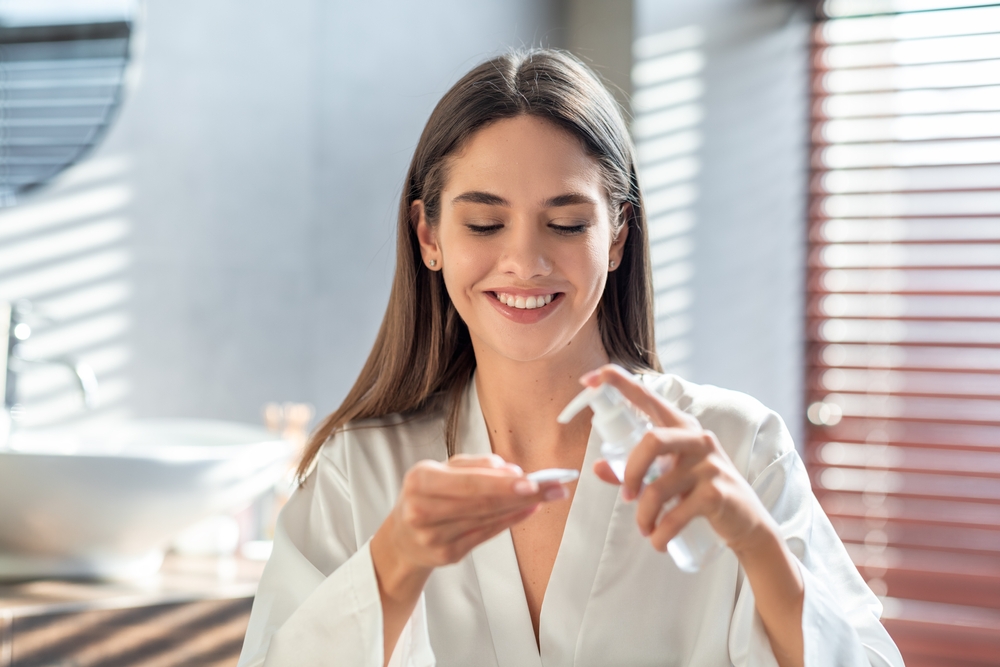In an era where sustainability is becoming increasingly significant, adopting an eco-friendly skincare routine is an excellent way to contribute to the planet’s well-being. Not only does it help reduce waste and pollution, but it also ensures that the products you use are safe for your skin and the environment.
Here are some practical tips for creating a sustainable skincare routine:
Choose eco-friendly brands
The first step towards a sustainable skincare routine is selecting products from brands that prioritise sustainability. Look for companies that use natural, organic ingredients and eco-friendly packaging. Many brands now offer refillable containers, which significantly reduce plastic waste. Additionally, check if the brand has certifications such as cruelty-free, vegan, or Fair Trade, ensuring their products are ethical and environmentally friendly.
Opt for multi-use products
Simplifying your skincare routine with multi-use products can be highly effective in reducing waste and consumption. For instance, consider using a moisturiser that also has SPF protection or a tinted moisturiser that works as a foundation. These products not only save you time and money but also reduce the number of items you need to purchase and dispose of.
Reduce water usage
Being mindful of water usage is another critical aspect of a sustainable skincare routine. Avoid leaving the tap running while washing your face or cleansing. Opt for waterless products like micellar water, which cleanses the skin without the need for rinsing. Additionally, consider using a face cloth or reusable cotton pads instead of disposable ones, as they require less water to clean and can be used multiple times.
Recycle and reuse packaging
Properly recycling and reusing skincare product packaging can greatly minimise environmental impact. Before disposing of any packaging, ensure it is thoroughly cleaned to avoid contamination in the recycling process. Many brands offer recycling programmes where you can return empty containers for recycling or even receive a discount on your next purchase. Reusing packaging for other purposes, such as storage or DIY projects, can also extend its life cycle and reduce waste.
Support local and small businesses
Purchasing skincare products from local and small businesses can significantly lower your carbon footprint. These businesses often source their ingredients locally and produce in smaller batches, which reduces transportation emissions and supports the local economy. Additionally, small businesses are more likely to use sustainable practices and offer unique, high-quality products.
DIY skincare
Creating your own skincare products at home can be an enjoyable and sustainable alternative to buying commercial products. By using natural ingredients like coconut oil, aloe vera, and essential oils, you can make effective and eco-friendly skincare treatments. DIY skincare not only reduces packaging waste but also allows you to control the ingredients and tailor products to your skin’s needs.
Be mindful of ingredients
Paying attention to the ingredients in your skincare products is crucial for both your health and the environment. Avoid products containing harmful chemicals like parabens, sulfates, and synthetic fragrances, which can be detrimental to your skin and the ecosystem. Instead, opt for products with natural, biodegradable ingredients that are safer for you and the planet.
Minimise your routine
Adopting a minimalist approach to your skincare routine can significantly reduce waste and simplify your life. Focus on the essentials: a gentle cleanser, a good moisturiser, and sun protection. By reducing the number of products you use, you not only decrease waste but also make it easier to maintain a consistent and effective skincare routine.
Support sustainable initiatives
Many skincare brands support various environmental and social initiatives. By purchasing from these brands, you are indirectly contributing to these causes. Look for brands that donate a portion of their profits to environmental charities or participate in reforestation projects. Supporting such initiatives can make a positive impact beyond your skincare routine.







